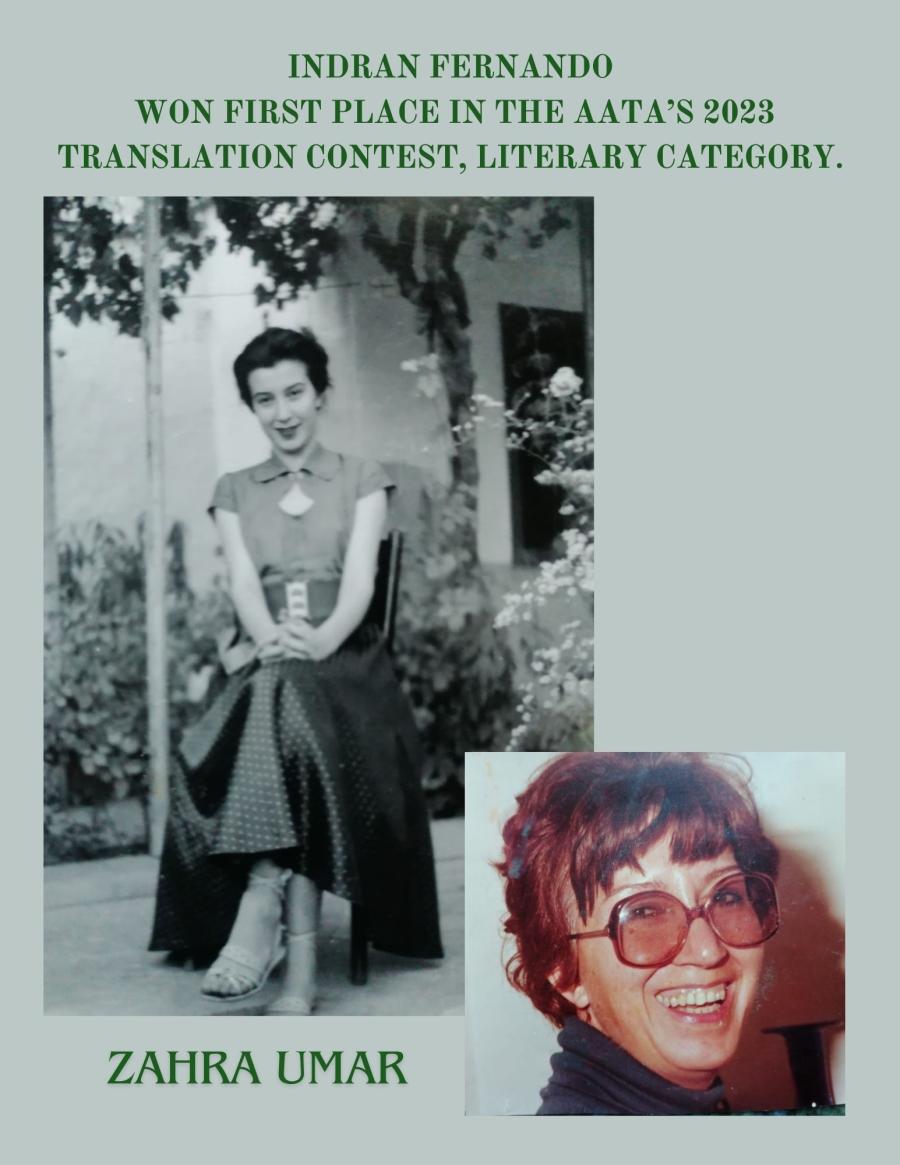Congratulations to NELC PhD student Indran Fernando, who won first place in the AATA’s 2023 Translation Contest, Literary Category. The American Association of Teachers of Arabic Translation Contest Award is given biennially in recognition of outstanding achievement by students of Arabic in translating into English a significant work or portion of a work composed in Arabic.
Indran's translation was of an excerpt from the novel Al-Khurūj min Sawsrūqa by Zahra ‘Umar.
The Jordanian author Zahra ‘Umar Abshatsa was born in Amman in 1938. Her parents, members of the Circassian ethnic group, had migrated there after fleeing their homeland in the Northwest Caucasus around the turn of the twentieth century. As a young woman, ‘Umar became involved in the banned Jordanian Communist Party and married her comrade Ẓāhir al-Ma‘ānī. They had four children together. After al-Ma‘ānī passed away when ‘Umar was only twenty-seven, she and her children moved in with her mother, who would serve as inspiration for the protagonist of her novels.
Between 1988 and her death in 2000, Zahra ‘Umar composed Al-Khurūj min Sawsrūqa: riwāyat al-shatāt al-sharkasī (Exodus from Sosruko: a novel of the Circassian diaspora, 1993) and the sequel, Sawsrūqa khalf al-Ḍabāb (Sosruko behind the Fog, 2001). These works weave together Circassian history, ancient myths known as the Nart sagas, and flourishes of the supernatural, as well as carrying echoes of the indigenous Adyghe language. The Egyptian novelist Radwa ‘Ashour praised the “bold experimentalism” of ‘Umar’s style, her attention to subject matter “untouched by Arabic fiction,” and the way she draws parallels between Circassians’ experience of forced displacement in 1864 and the Palestinian Nakba.
Congratulations, Indran!

